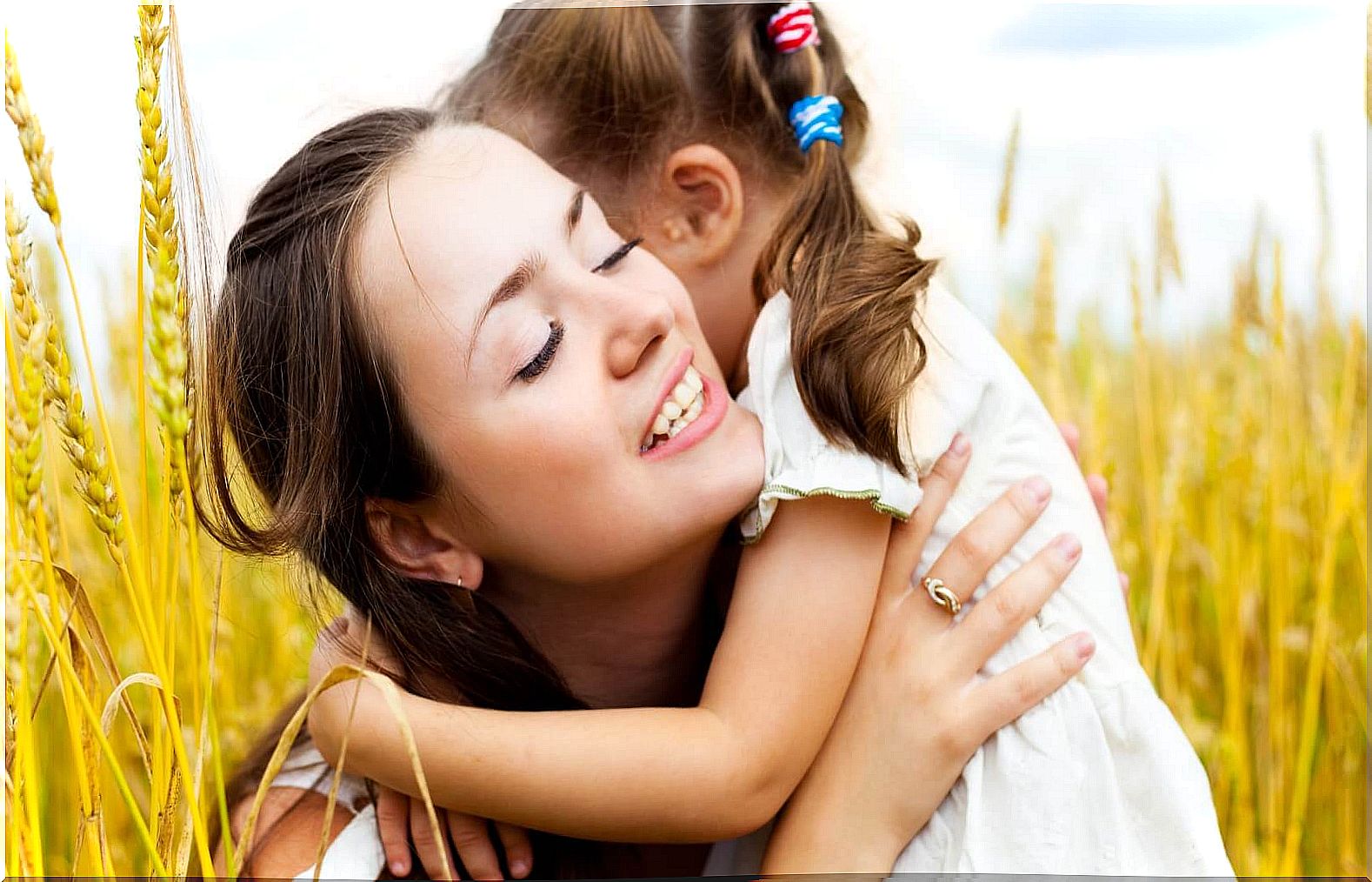The Best Way To Raise Good Children Is To Make Them Happy
Good children respect others and in turn, know how to take care of themselves because they have good self-esteem.
The character of a child depends on many factors: there is a genetic component, but the parenting style and the environment are, without a doubt, determining factors in shaping a good part of their personality and behavior.
It is also clear that there are children that are somewhat more rebellious than others, without us knowing very well why in a first contact.
Now, when those little rebels are our children, we must bear in mind that we should not reprimand them. They need us, our emotional intelligence, our guidelines and our understanding to learn to manage themselves correctly and learn to live harmoniously with others in their environment.
Next we expose the need to educate in happiness, and to put into practice several daily strategies.
Good children, free and responsible children
Maria Montessori was one of the most relevant pedagogues and educators of the 20th century. Thanks to its methodologies and its schools, it provided us with multiple resources and approaches with which to promote the maturity and happiness of our children.
The importance of sensitive periods
Montessori noted that children seem to go through phases where they repeat an activity over and over again. They are totally absorbed in what they are doing and, during that time, it is the only thing they are interested in. With this, they show their predisposition to develop new skills and knowledge.
According to Montessori, once they have acquired sufficient knowledge of the world, they pass the phase and that uncontrollable desire disappears. However, if they are heavily restricted and their natural instincts hampered, they may throw a tantrum to show that they have an unmet need to learn.
- The age between 0 and 6 years is key in the development of children. From 0 to 3 years old, the child has an ‘absorbing mind’, that is, he learns through impressions he absorbs from the environment without being aware of the process. Then, from 3 to 6 years old, the child develops a conscious mind. He still absorbs information from the environment, but has developed memory and will.
- The next sensitive period is from 6 to 12 years old. It is a time when, according to Montessori, the little ones acquire culture.
- From 12 to 18 years there is a period of acquisition of independence. Montessori saw it as a period when so many changes take place that the child needs as much care and attention as when he is less than 6 years old.

Freedom always goes hand in hand with responsibility
This concept must be clarified from the beginning. Offering the child freedom is not based on letting him do whatever he wants. Just as we as adults have responsibilities, they too have their own responsibilities that must be respected.
- As the child shows you responsibility, you can allow him leave in his daily life.
- Good kids aren’t just ‘obedient’ at their most passive. It’s not about just obeying, it’s about understanding your responsibilities and acting around them.
- I know I have to do my homework so I can play later. I know that I must respect my brothers if I want them to respect me and love me.

Understand their emotions
Children do not manage their emotional world adequately because they do not understand it, and sometimes it exceeds them.
For this reason, they can, for example, confuse sadness with anger, and we make the mistake of punishing them without understanding what is behind these challenging behaviors.
Encourage proper communication with your children, be someone close to whom they can always trust. To do this, avoid falling into these errors :
- Do not judge.
- Don’t make fun of their feelings.
- Also, do not compare one child with another or with one of his siblings.
Yes to a democratic parenting style
A democratic education is not permissive. Above all, it favors freedom, communication and the freedom of the child based on RESPONSIBILITIES.
- Democratic parenting sets rules and limits that must be respected. Now, every rule must be understood by the child and, of course, fulfilled.
- Democratic upbringing is based on continuous dialogue, where the voice is not raised, where there are no shouts or impositions, but respect and closeness.
Good kids, kids with good self esteem
When we speak of good children we are not describing those gentle and calm creatures. The good boy is good for the following reasons:
- He is a person who takes care of himself, because we parents have favored his self-esteem, because we have given him encouragement, positive reinforcement and confidence.
- Good children respect others, but they do not allow themselves to be manipulated. They know how to defend themselves and are skilled at saying what they want and what they don’t, with ASSERTIVENESS.
Emotional intelligence is essential for raising good children
To conclude, we know that educating is not easy and that, sometimes, between the lack of time and our concern to be the best fathers and the best mothers, we tend to harbor some fears about whether we are doing it well.
Do not worry, being parents is, above all, being present at every moment to accompany them on their life path. To offer them affection, help and in turn favor their freedom.
It is they who must choose their path, they are the architects of their own dreams that they will be able to achieve if, in the meantime, we encourage them to grow in happiness.
Note : what has been exposed here is indicative information. If you need help with your children’s education, we recommend consulting with a specialist.








